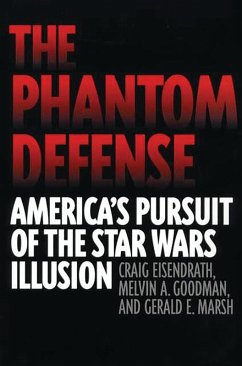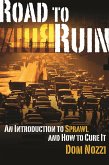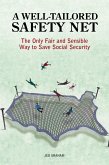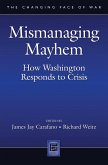In the past four decades, the United States has spent $85 billion pursuing the fantasy of an effective missile defense system to shield our nation against the threat of a nuclear attack. Recent public tests, while less exotic than some of the original Star Wars proposals, were spectacular failures and call into question the whole program's rationale. Neither the land-based system proposed by the Clinton administration, nor the alternatives proposed by earlier administrations, would ever work--regardless of how much R&D money is channeled into the project. Rather than enhancing national security, these doomed efforts would provoke a new arms race and alienate key allies. The authors apply their extensive insiders' expertise to argue that thoughtful diplomacy is the only real answer to meet America's national security goals. Like President Reagan with his Star Wars program, President Bush has again made national missile defense (NMD) a national priority at a cost which may exceed $150 billion in the next ten years. Defense experts Eisendrath, Goodman, and Marsh contend that recent tests give little confidence that any of the systems under consideration--land-based, boost-phase, or laser-driven--have any chance of effective deployment within decades. The interests of the military-industrial complex and the unilateralist views of the Bush administration are driving NMD, not a desire to promote national security. Rather than increase U.S. security, the plans of the current administration, if implemented, will erode it. NMD will heighten the threat from China and Russia, alienate key allies, and provoke a new arms race and the proliferation of nuclear weapons, all in response to a greatly exaggerated threat from so-called rogue states, such as North Korea and Iran. Thoughtful diplomacy, not a misguided foreign policy based on a hopeless dream of a Fortress America, is the real answer to meeting Americas security goals. Designed to stimulate interest and debate among the public and policy-makers, The Phantom Defense provides solid facts and combines scientific, geopolitical, historical, and strategic analysis to critique the delusion of national missile defense, while suggesting a more effective alternative.
Bitte wählen Sie Ihr Anliegen aus.
Rechnungen
Retourenschein anfordern
Bestellstatus
Storno









